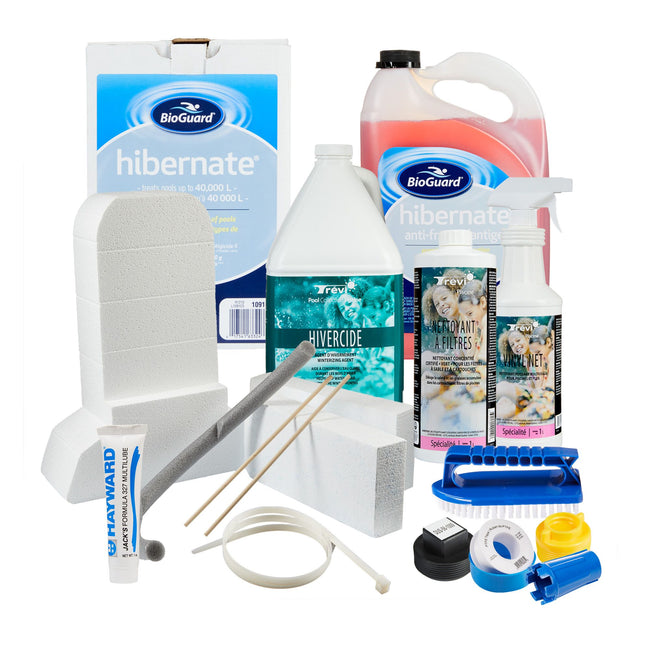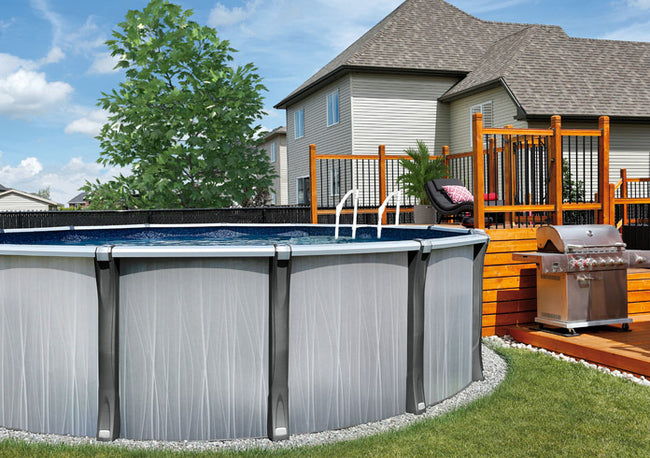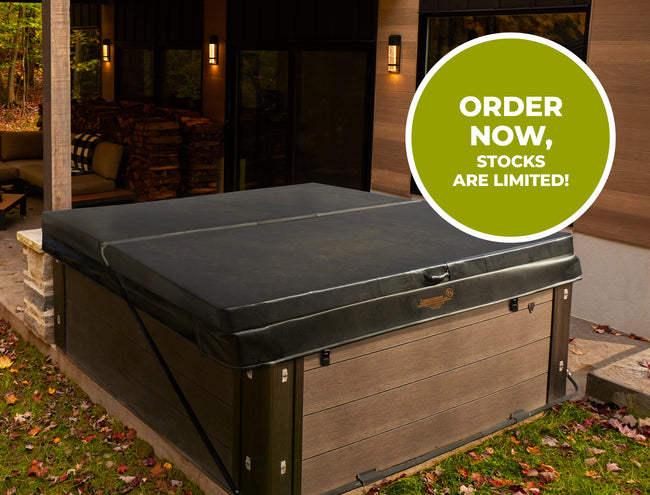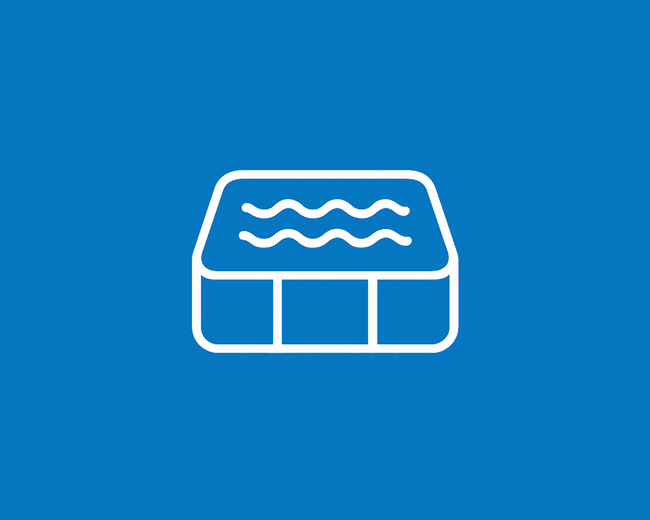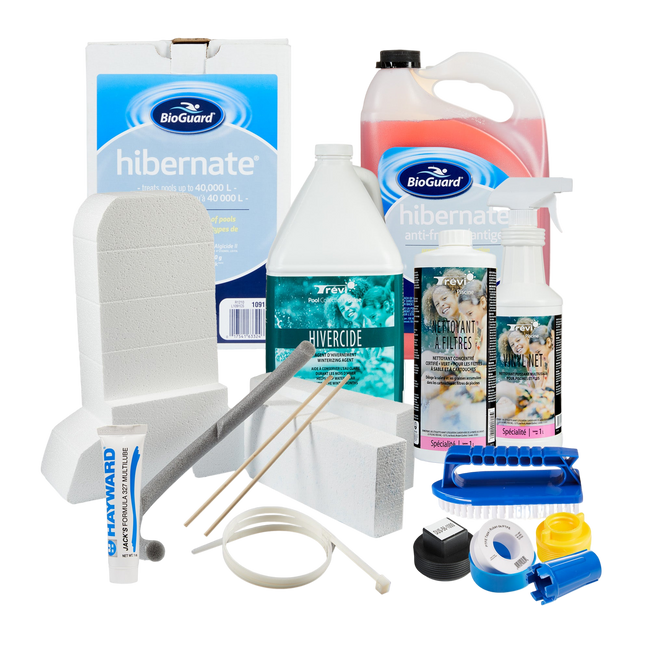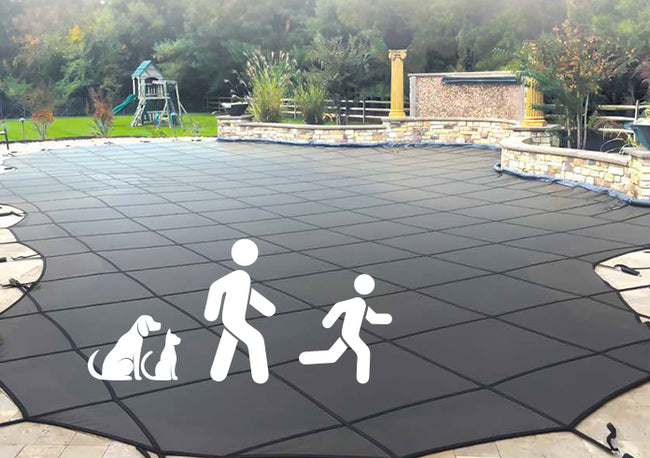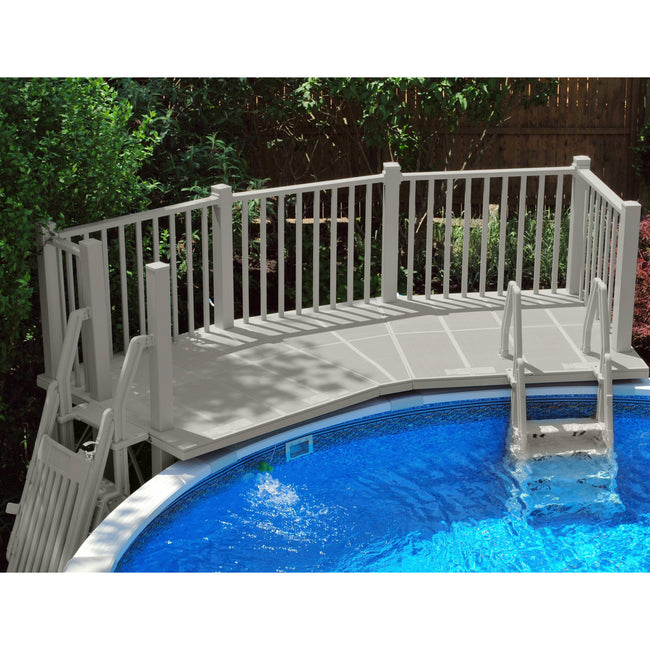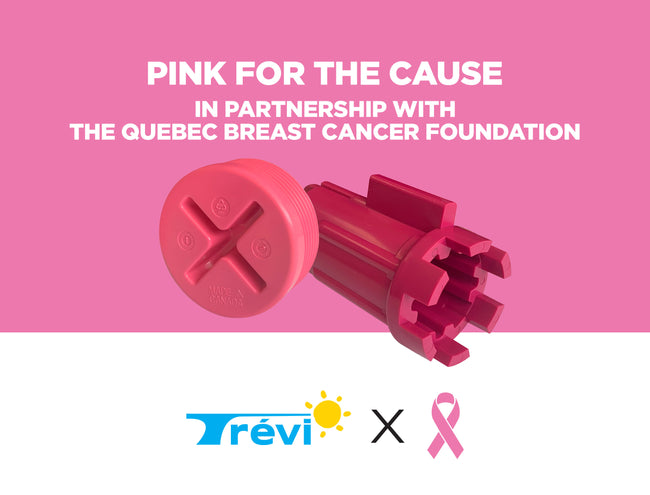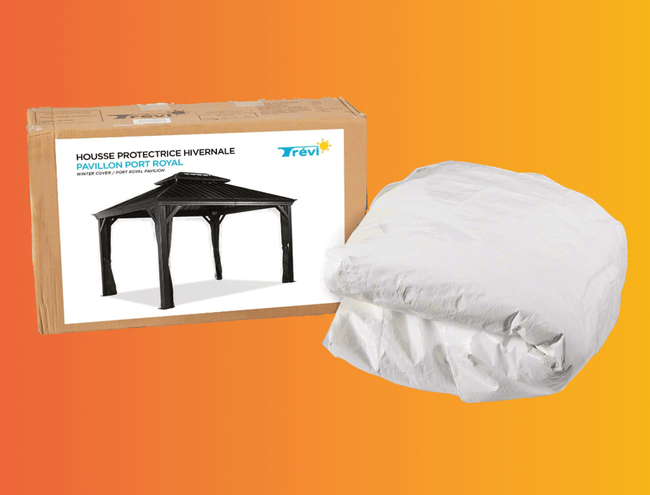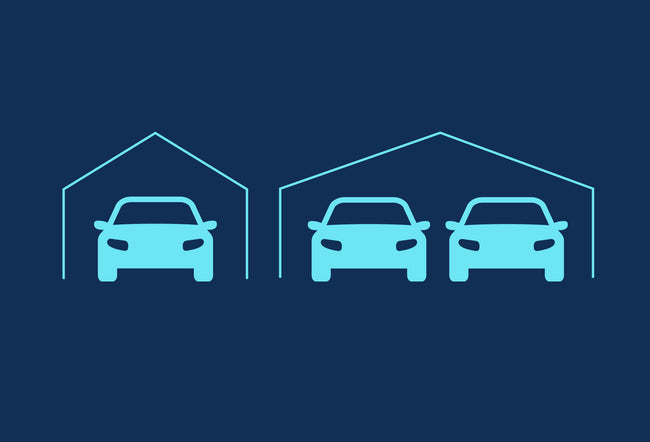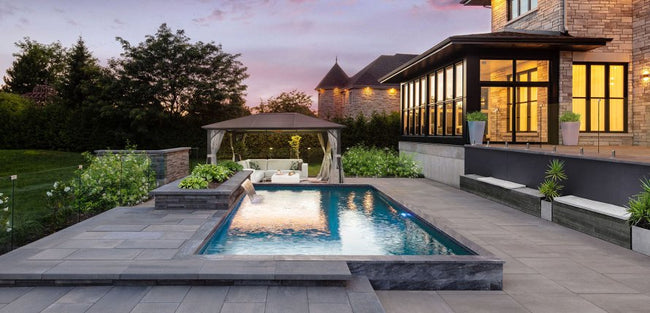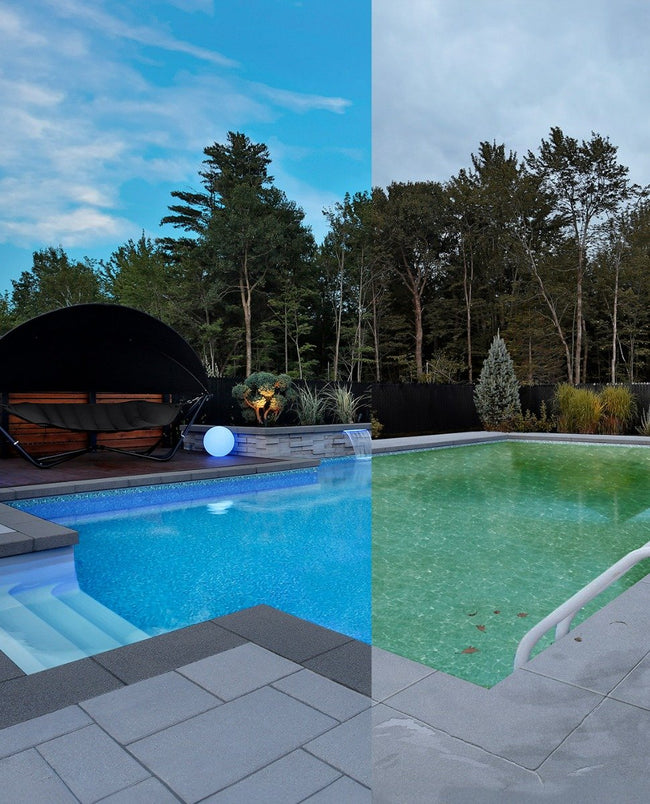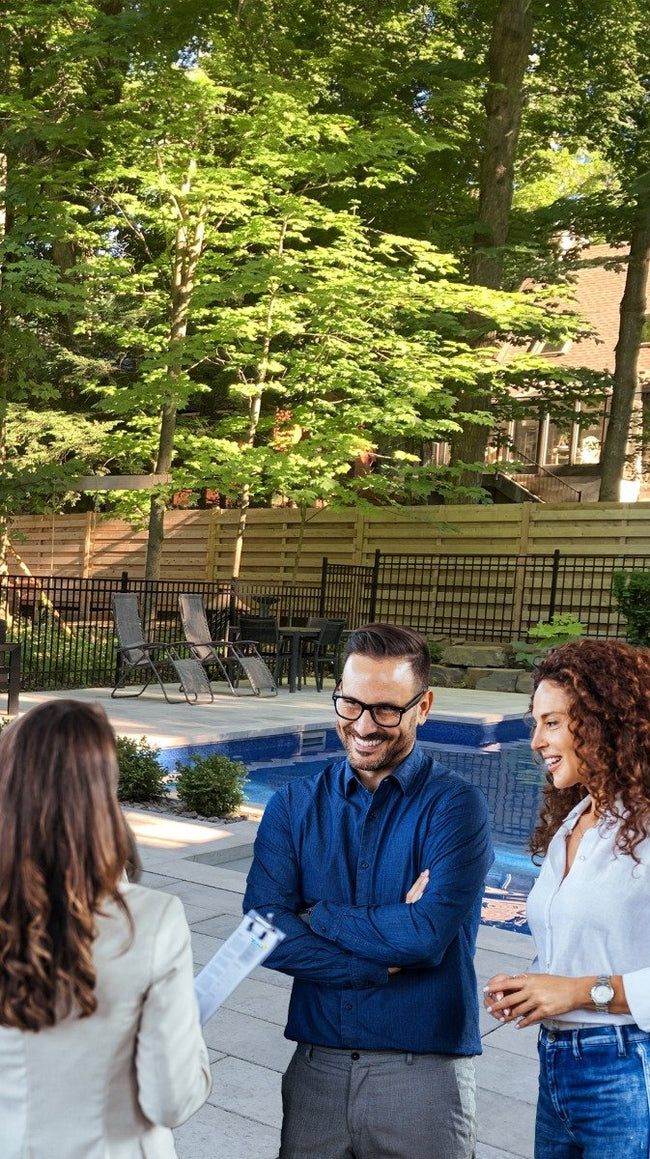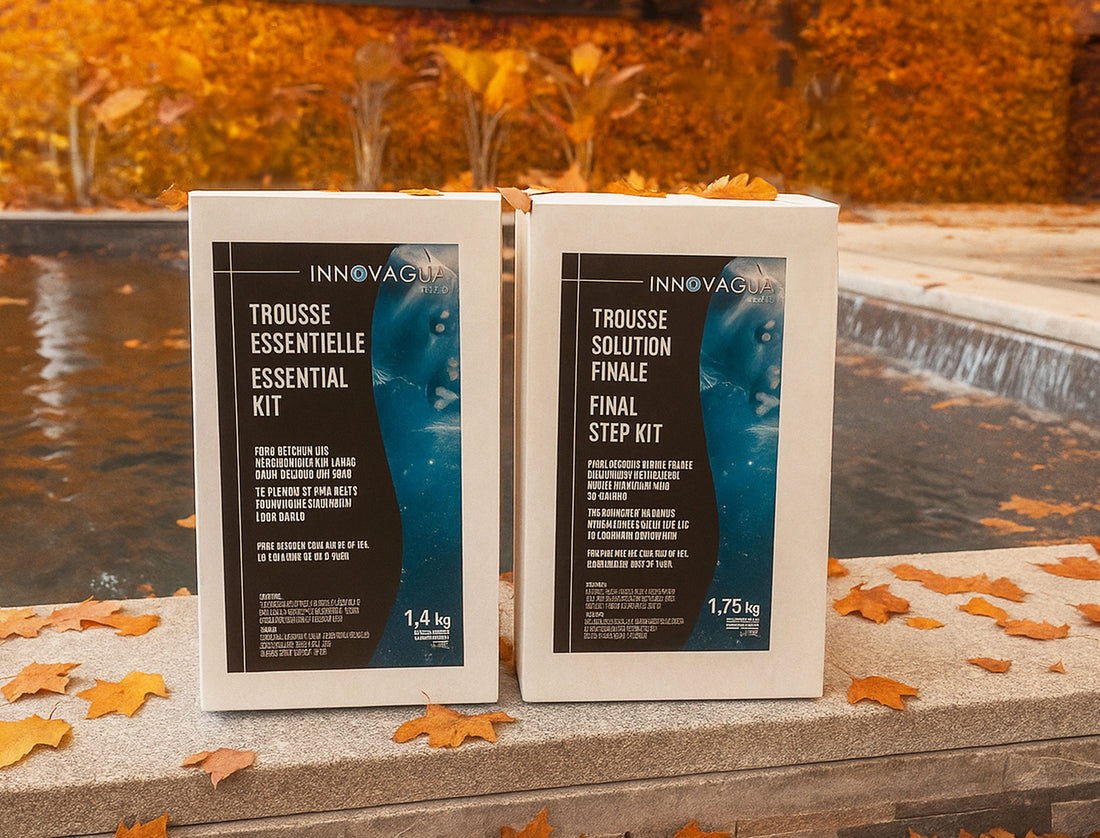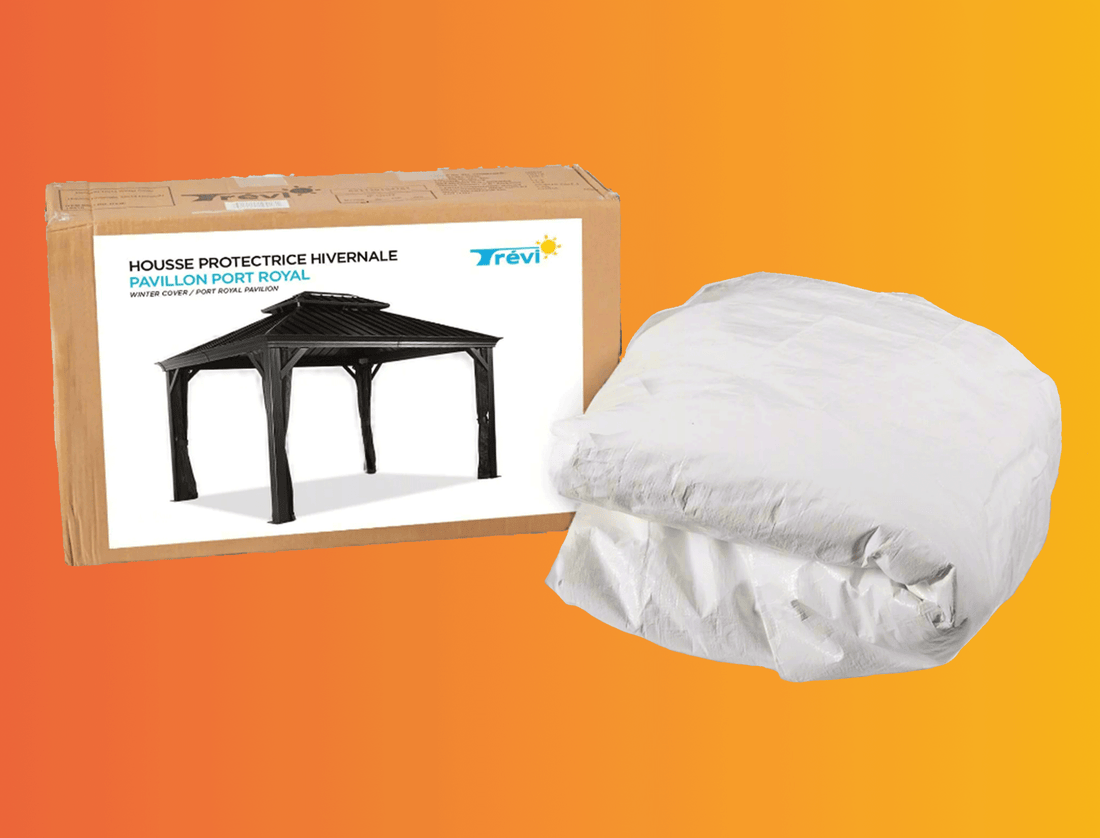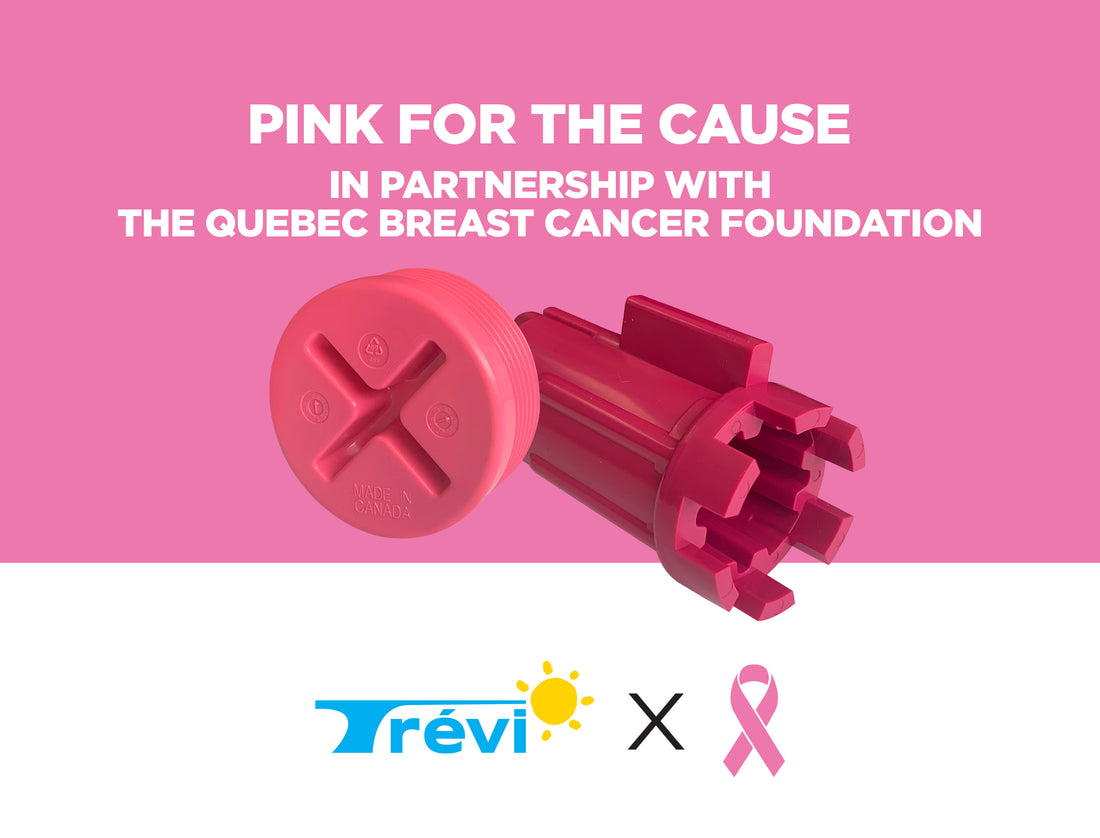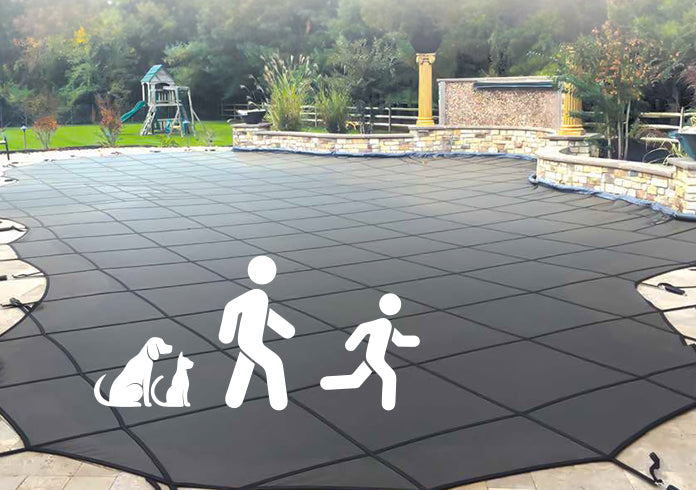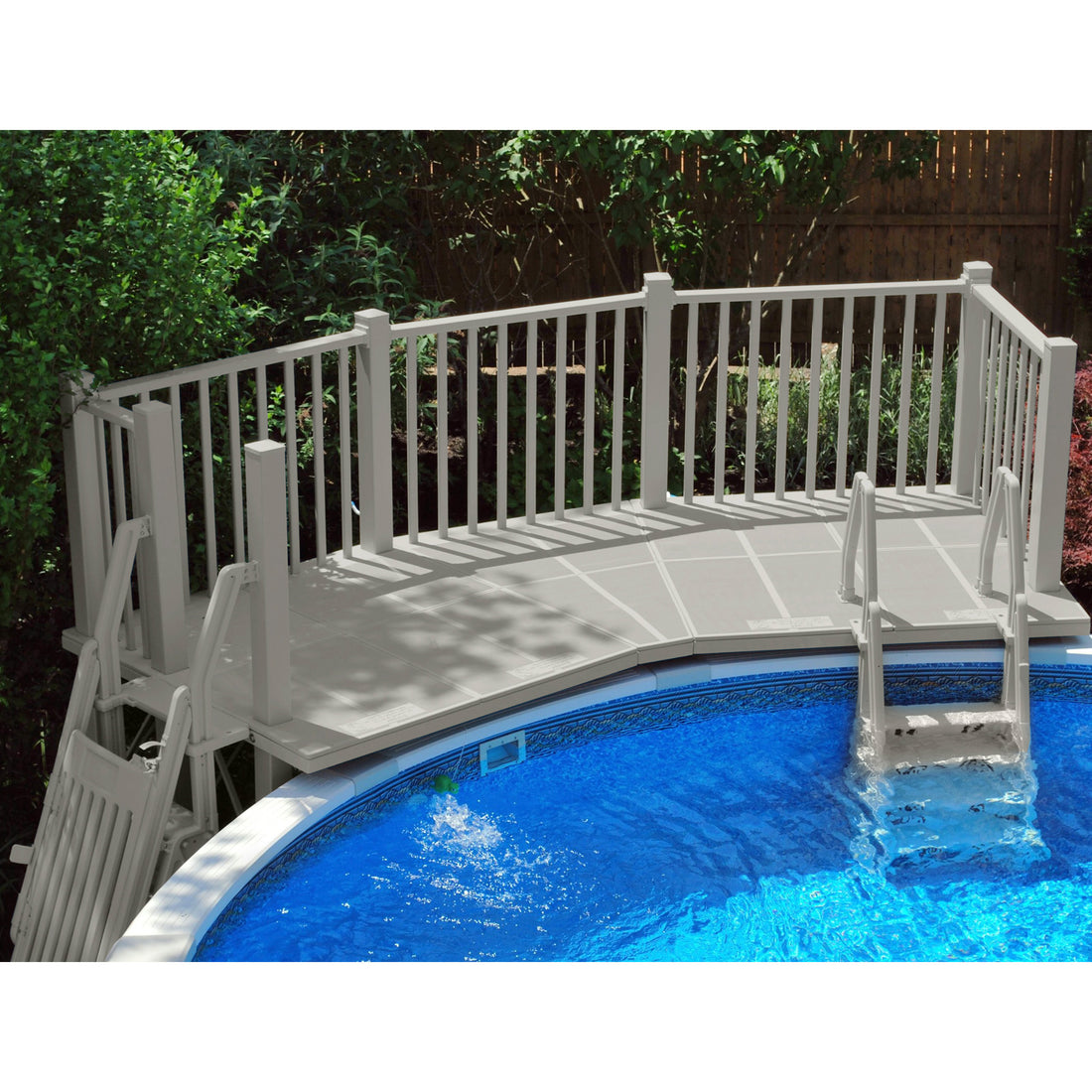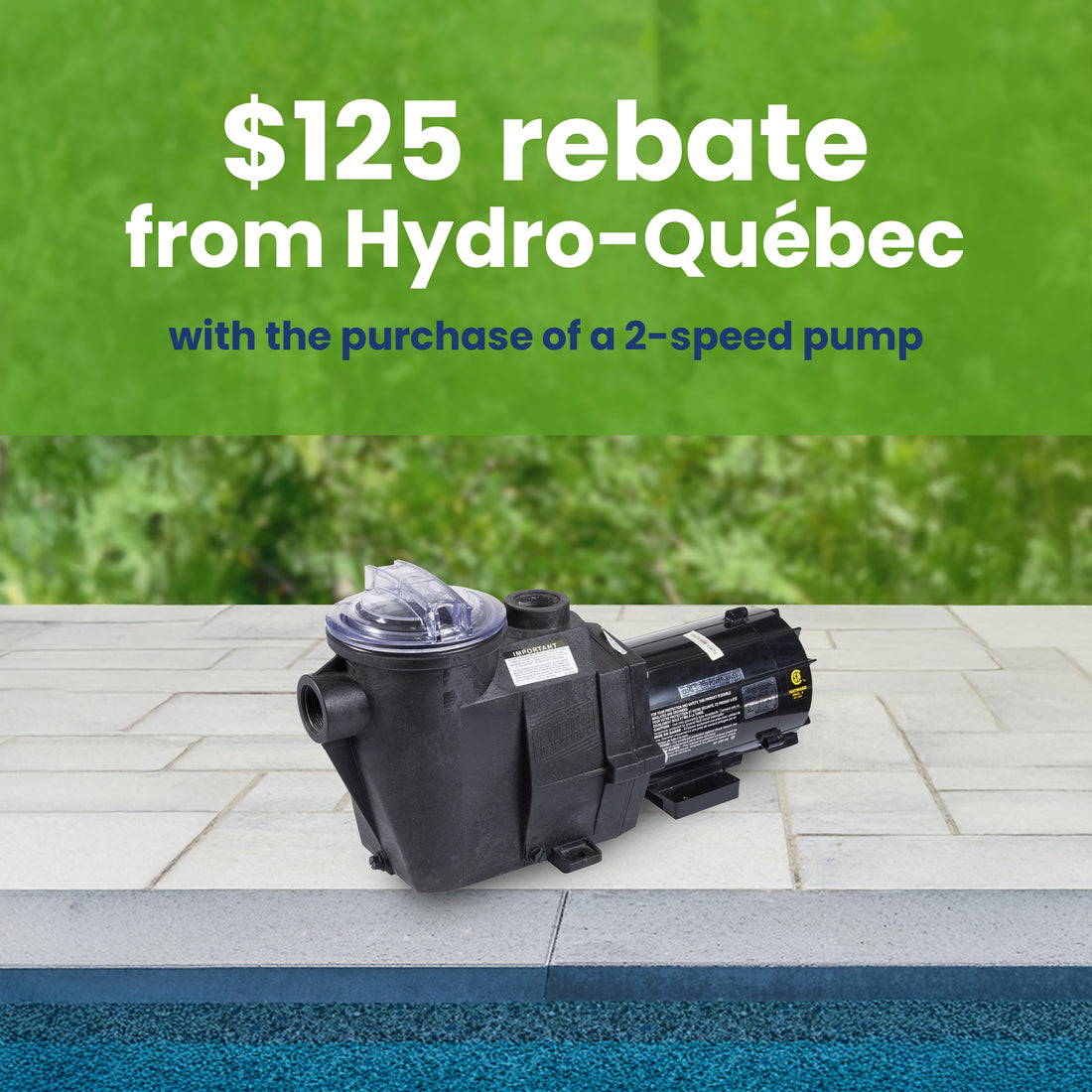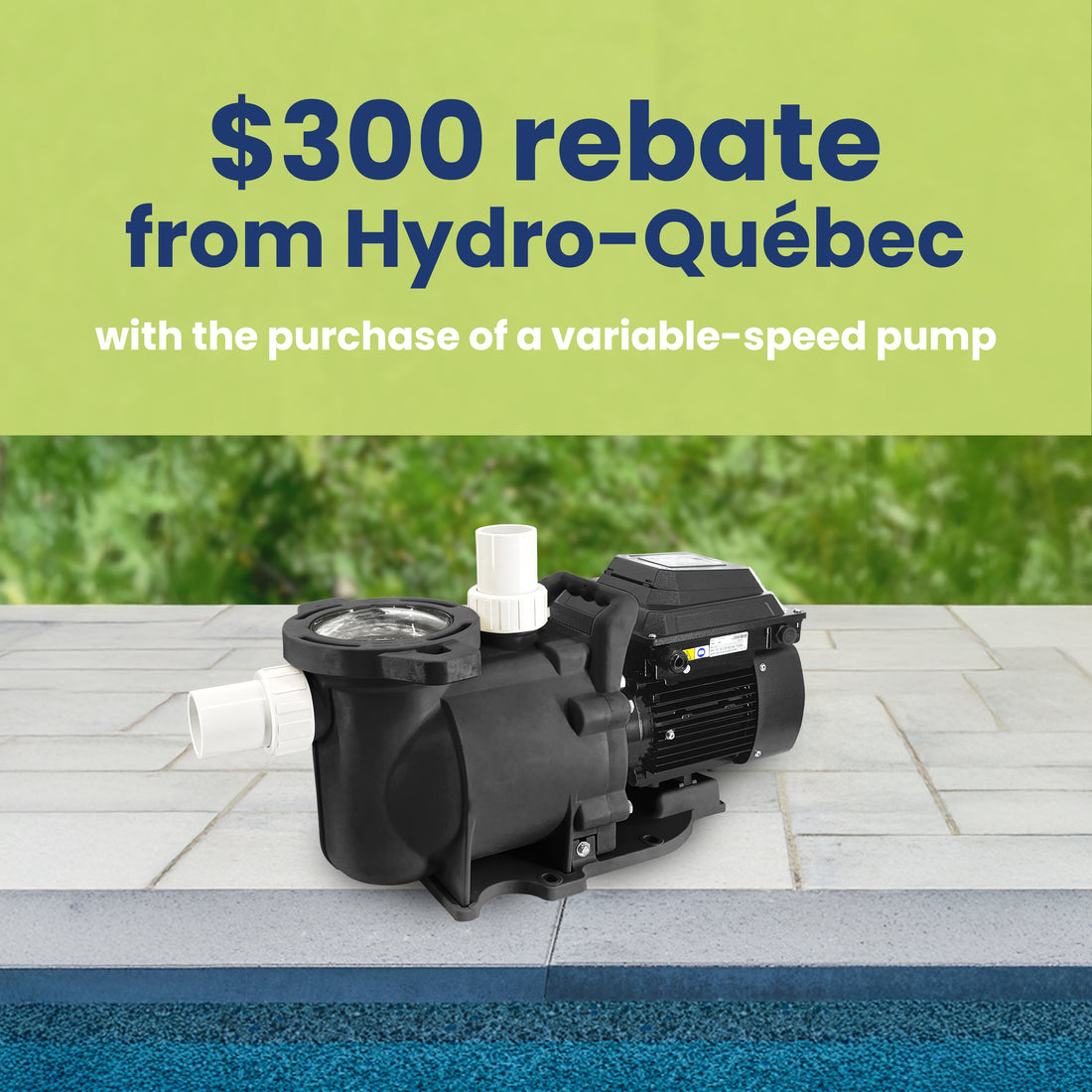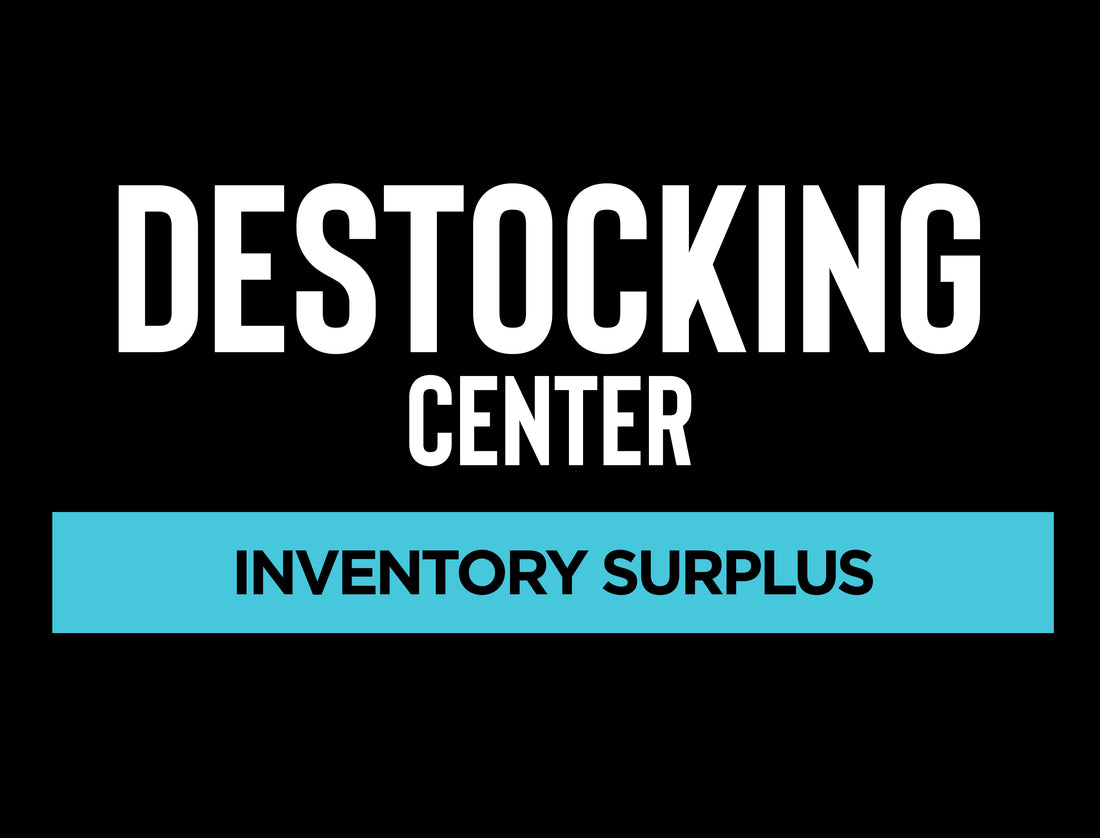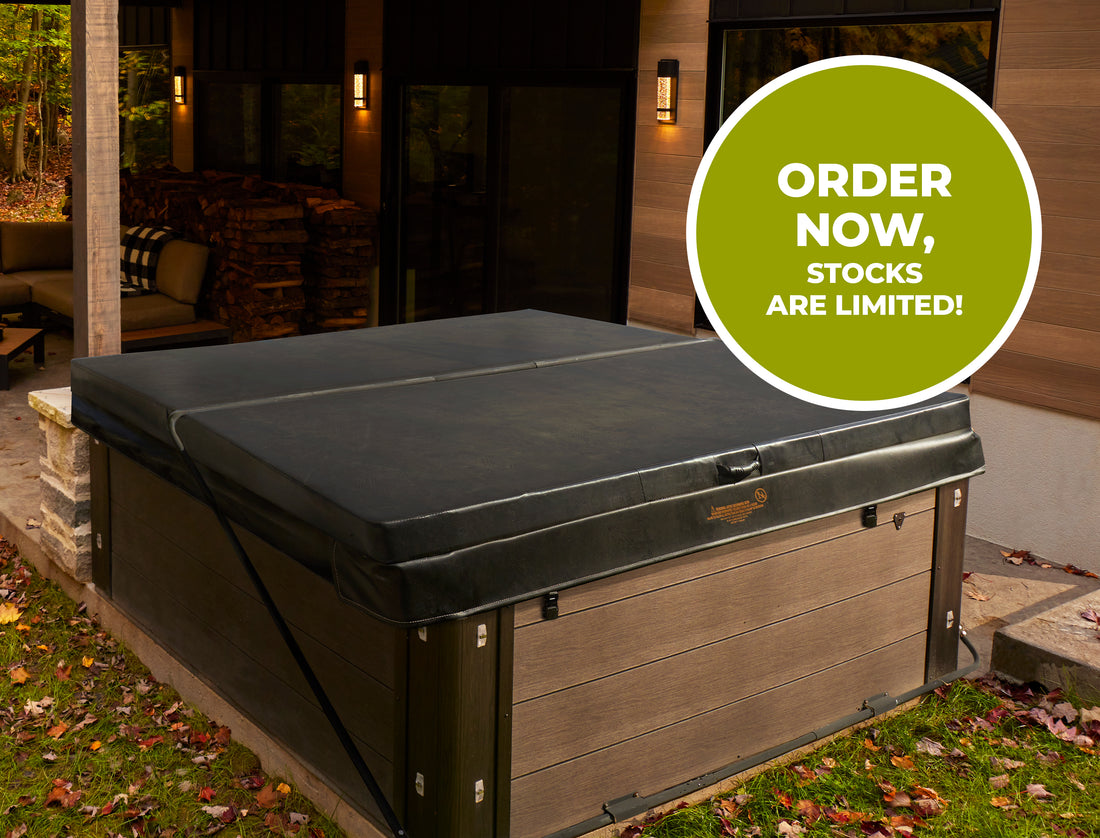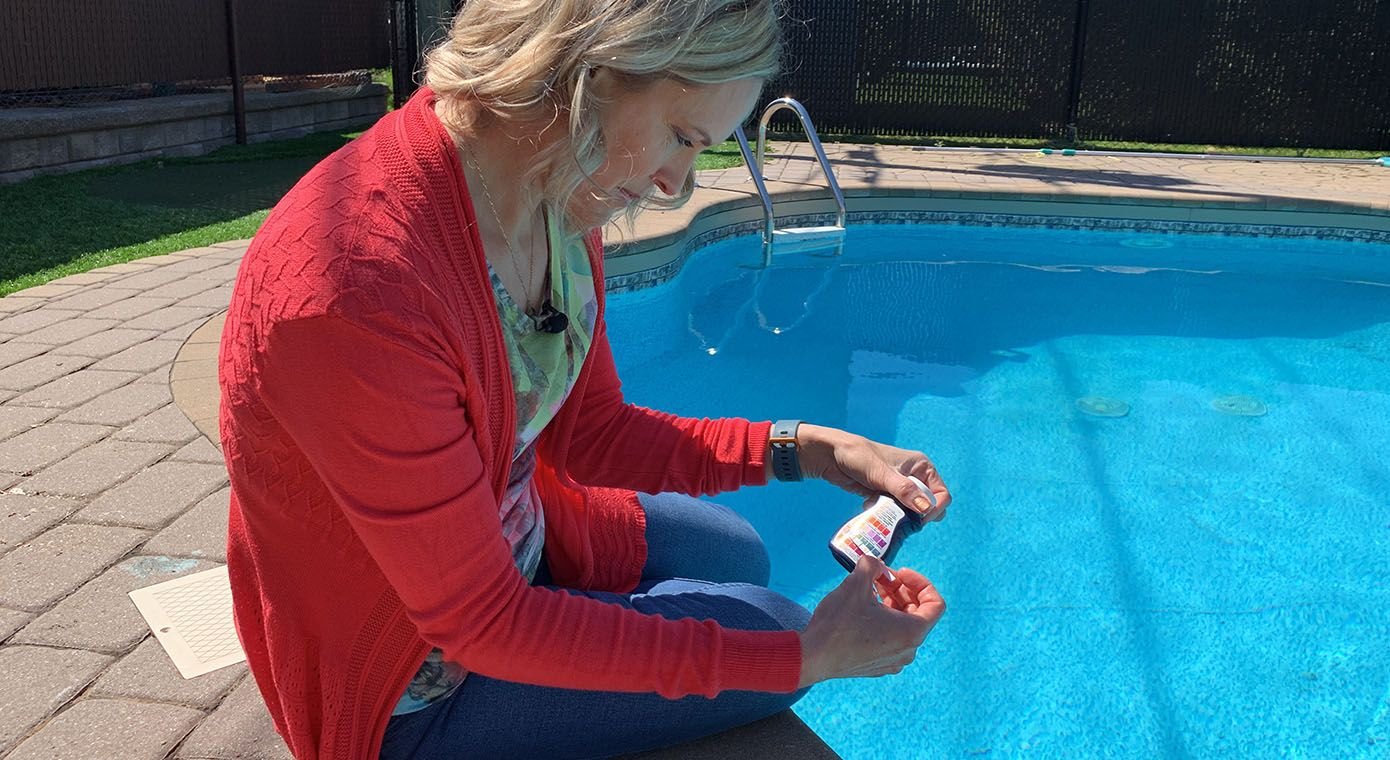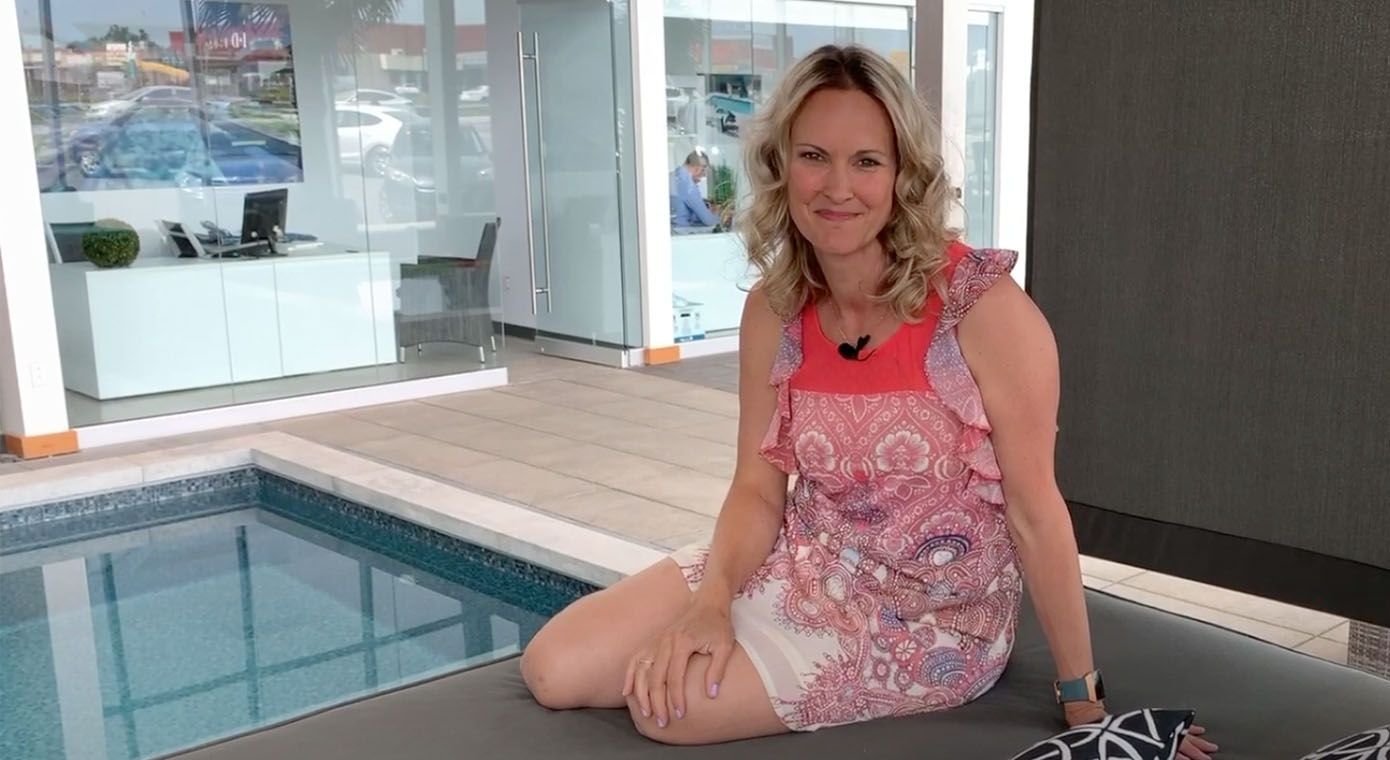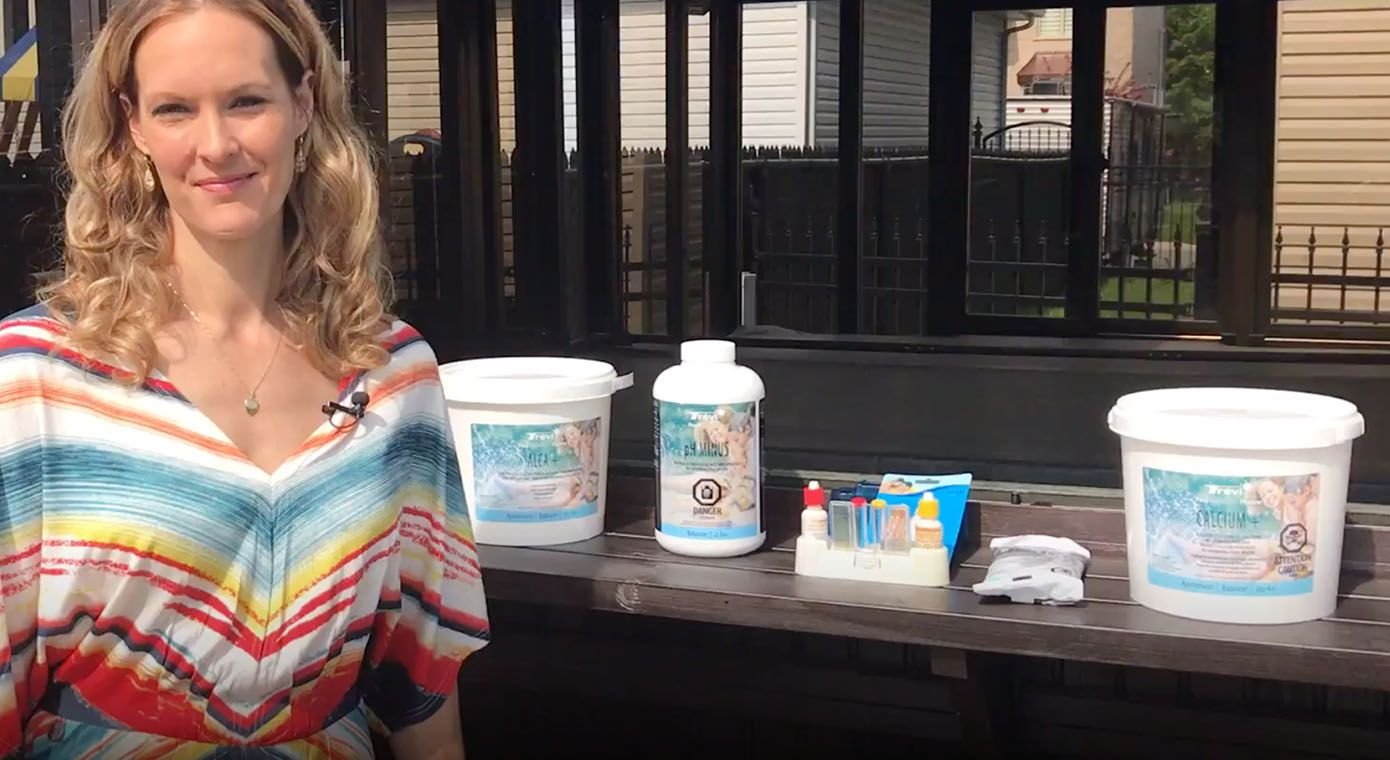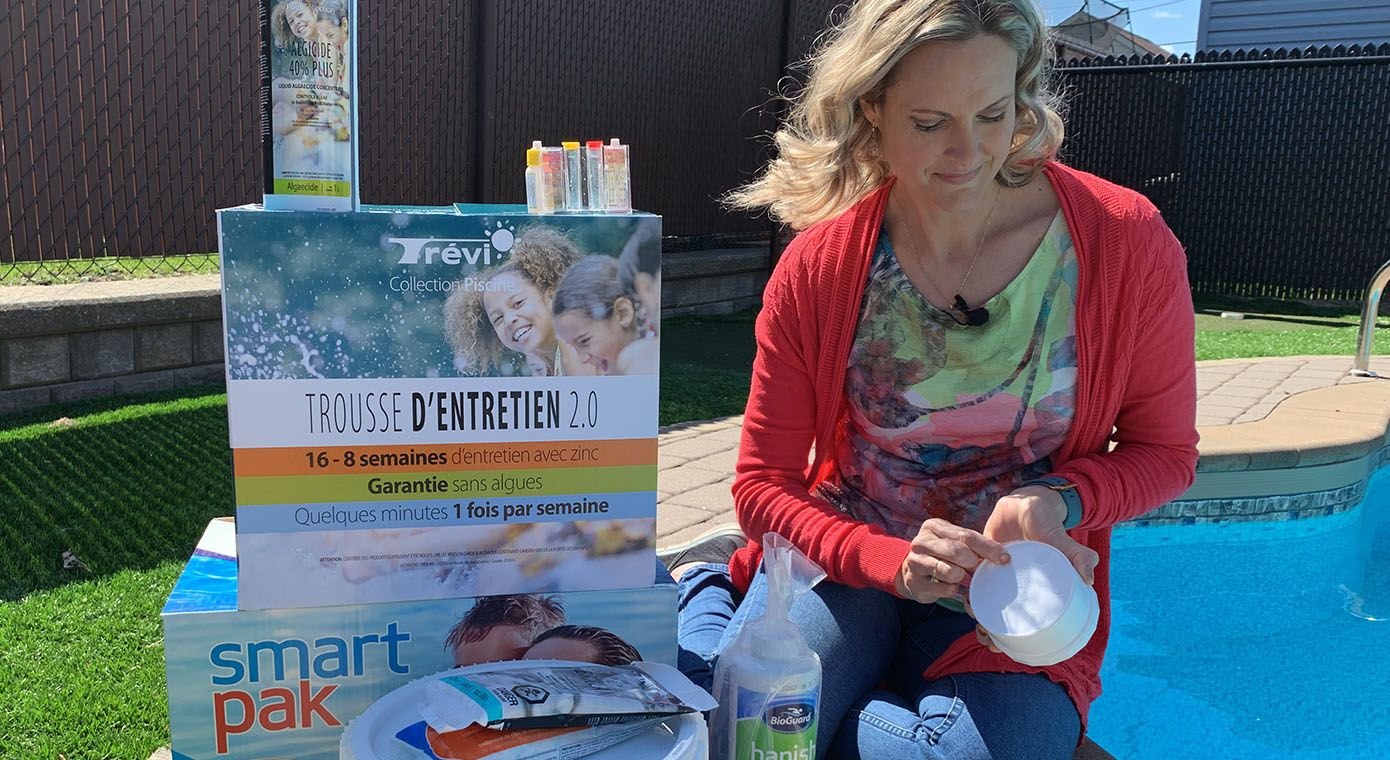How to balance your pool water: 5 simple steps with the right products
Clear, healthy, pleasant water doesn't just happen. It relies on proper water balancing, an essential routine for any pool, whether chlorine or bromine. In this guide, we take a look at the 5 key parameters discussed in our most recent video, and present the products recommended for each stage.
🧪 Keep your test strips handy
Before beginning any adjustments, it is important to have pool test strips on hand. Simply dip the strip in the water for a few seconds, then compare the colors to the indications on the container. You can then interpret each result using the following sections.
1. Total alkalinity: the cornerstone of balance
Alkalinity is the first measurement to check. It acts as a buffer to stabilize the pH. Incorrect alkalinity causes constant pH fluctuations.
- Ideal value: between 80 and 120 ppm.
- Tip: Always adjust the alkalinity BEFORE correcting the pH.

2. pH: the core of chemical balance
The pH determines whether your water is acidic or alkaline. An unbalanced pH can damage equipment, irritate the skin, or reduce the effectiveness of chlorine/bromine.
Ideal value: between 7.2 and 7.6.

3. Disinfectant – Chlorine or Bromine: for pure water
The disinfectant kills bacteria and algae. Either one can be used, but it is important not to mix them.
Target values:
- Chlorine: 1 to 3 ppm.
- Bromine: 2 to 4 ppm.
🔄 Never apply a shock treatment without first testing and adjusting the alkalinity and pH1


4. Calcium hardness: avoid corrosive or scale-forming water
Hardness measures the level of calcium in water. Water that is too soft becomes corrosive, while water that is too hard causes limescale deposits.
- Target value: 200 to 300 ppm.
💡 Pay particular attention to this in areas where municipal water is naturally soft.

Calcium hardness too low
Calcium hardness too high
You must remove some water and replace it with fresh water.
5. Stabilizer (Cyanuric acid): protect chlorine from the sun
The stabilizer acts as a “sunscreen” for your chlorine. Without it, chlorine degrades quickly under UV rays.
- Ideal value: between 30 and 50 ppm.
⚠️ Too much stabilizer can reduce the effectiveness of chlorine: test regularly.

Stabilizer too low
Stabilizer too high
You must remove some water and replace it with fresh water.
Expand your knowledge with our tips and advice
🧪 Tip: Test often, adjust precisely
Get a complete test kit or Trévi multi-parameter test strips to monitor these five aspects. Our branch experts can also analyze your water for free in store and offer you a personalized plan.
In-store classes
Learn how to maintain your spa from our in-store experts.
Ready for more tips?
Check out our maintenance guide to learn how to extend the life of your pool and maintain its quality throughout the season.

